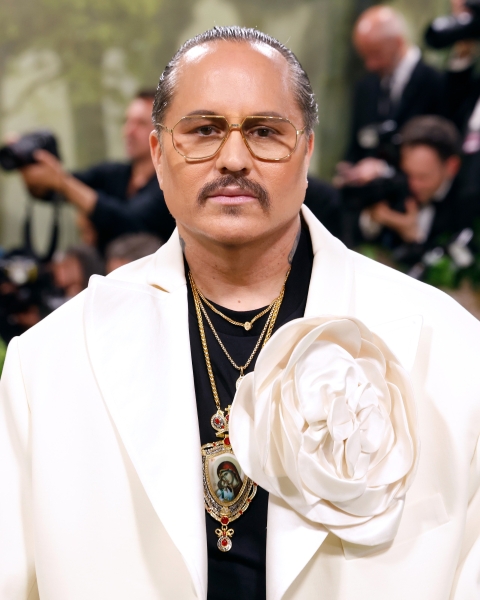Willy Chavarria has crept into everyday life. Perhaps you’ve seen the designer’s clothing when you pull up Omar Apollo’s new album, on YouTube when you watch Kendrick Lamar’s “Not Like Us” music video, or maybe in Justin Bieber’s paparazzi photos.
Chavarria is just as surprised to see his work everywhere. We talk shortly after Justin Bieber is spotted out in New York wearing a pair of the designer’s white oversized basketball shorts (the same pair that Apollo wears on the cover of his new album, God Said No.) “It’s very, very rewarding,” Chavarria says over Zoom from his New York studio. This isn’t just a case of good influencer marketing, either. “What I love about it most is that we haven’t been a brand that really intentionally seeds product to drive sales.”
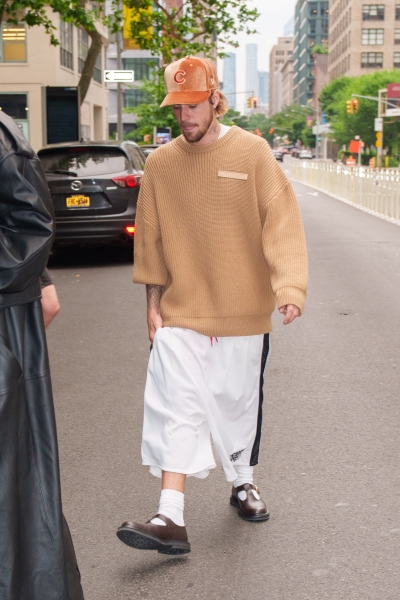
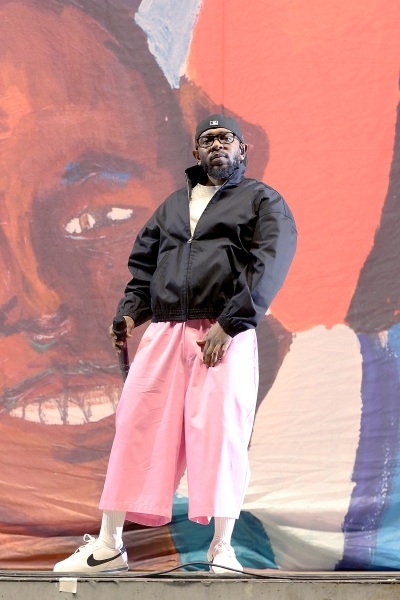
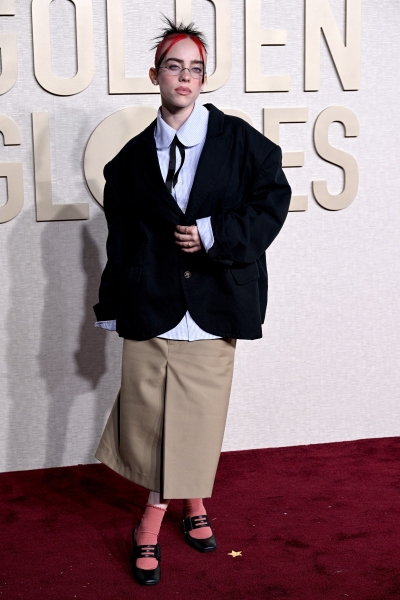
Despite the fact that Chavarria is becoming more of a household name, he isn’t dressing everyone who comes knocking on his door. With so much of his work imbued with his Chicano roots, the designer is cautious about bringing Chicano aesthetics into mainstream fashion. “It’s something I’m sensitive about and I’m very careful to do it in a way that is most of all respectful of my culture. So I don’t really work with just anybody to tell you the truth,” he says.
“Someone like Kendrick, who has so much thought and intelligence behind his work and his wardrobe, is so considered. He’s someone who understands the impact of what he's doing, and his messaging is all very, very politically minded, and it comes from a place of sincerity and goodness,” Chavarria says. “He’s also very LA, and it makes sense for him to wear highly Chicano-influenced stuff. I dressed him for his last tour, and the entire wardrobe for that tour was intentionally LA Chicano: white socks, Nike Cortez, and we just did it in really bold colors.”
So what is the criteria for joining the ranks of his celebrity clientele—Billie Eilish, Tracee Ellis Ross, and Lamar among them? Money isn’t enough. “The meaning of their work is very genuine and on the right side of humanity,” he says. “With all the negativity that we’ve got going on, that’s something very encouraging and very empowering, to see those people with those voices.”
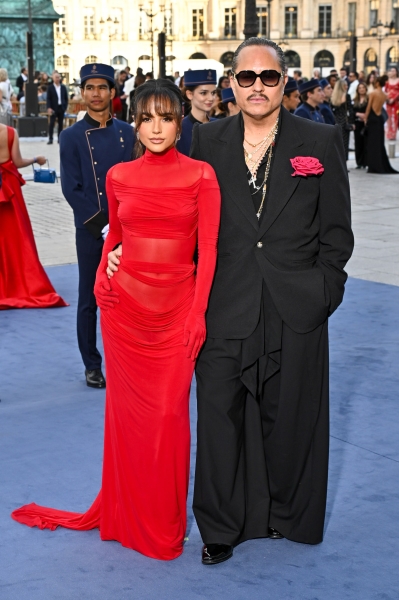
Chavarria’s social and political conscious are woven into his brand’s DNA. But there was once a time when he was discouraged from using his voice. “The first show I ever did was in 2017 and so many people tried to discourage me from doing something political, because you just don’t do that,” he says. Instead, he says, he was encouraged to stay apolitical in order to appeal to a wider customer base. “But I felt like I had to do something. It ended up being the best thing I ever did, because people actually felt very touched and heard and listened to, and like they could connect with the brand.”
Even with his selectivity, Chavarria still keeps a list of celebrities he’d like to dress. It’s probably not what you’s expect, though. “I’d like to dress more anchorpeople on TV,” he says. “I feel like a lot of them need my help.” The top of his list? “I love Joy Reid. I really want to style her. She’s so good.”
While it remains to be seen if Reid will turn up on her primetime MSNBC slot in one of Chavarria’s trademark oversize floral lapels, the designer has other plans to get involved in the political sphere. Immediately following his spring 2025 fashion show at New York Fashion Week in September, he will host a panel with the ACLU. “It’s just to get people more interested in what’s happening with democracy, and to excite people about going to vote in the presidential election,” he says. “I think it’s going to be a really important and cool part of Fashion Week.”

